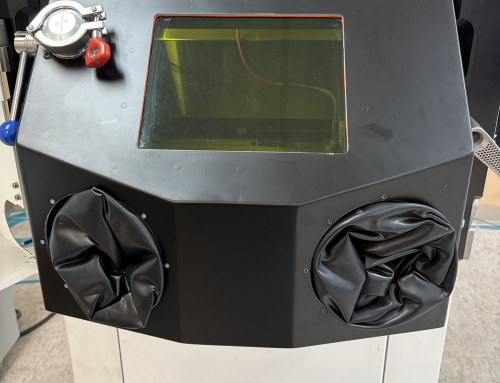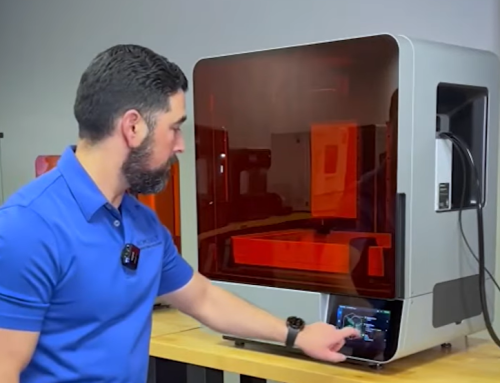reprinted from www.weforum.org

Ride into the future … 3D printing millions of industrial parts more efficiently and sustainably than ever before.
The Fourth Industrial Revolution is shaping up to be one of the most significant opportunities of our lifetime. We are already seeing jobs, policies, industries and entire economies shifting as our digital and physical worlds merge. This represents an important opportunity for business and for society. With this industrial revolution, we have a collective responsibility to ensure sustainability is a priority from the start.
According to the World Economic Forum, the value of digital transformations in the Fourth Industrial Revolution is estimated at $100 trillion in the next 10 years alone, across all sectors, industries and geographies. The manufacturing sector, which has long been a driver of global prosperity and economic growth, is key to this transformation.
Emerging technologies such as AI, robotics and 3D printing are disrupting the manufacturing industry and unlocking new ideas and potential that were previously unimaginable. With this change comes opportunity. 3D printing, in particular, is at the forefront, given its ability to reshape the sector. If we make the right decisions, it can also drive a sustainable impact for our planet, people and communities.
Digital manufacturing can create a brighter future for our planet by reducing the environmental impacts of production, shortening and simplifying traditional supply chains, unlocking new sustainable industries and accelerating a more circular and low-carbon economy. It has the potential to offer cleaner and safer jobs for workers, enabling greater well-being and opportunities for people everywhere. Digital manufacturing can also be a powerful force for social and economic good in our global communities by enabling new business models, the creation of new local jobs, and innovative new solutions to address our most challenging issues.
However, history has shown time and time again, radical change is difficult. To create a more equitable and sustainable future, we must work together to ensure that the Fourth Industrial Revolution is inclusive and powered by diversity. We must invest to prepare people with the skills to succeed in the future economy, and we need to incentivize sustainable innovation across industries.
This year at the Annual Meeting in Davos, HP will share its blueprint for a successful and sustainable production ecosystem in a fully digitized world. The blueprint will help address the challenges faced during previous industrial revolutions and is based on three pillars: education, incentives, and collaboration.
Education: Accelerated innovation, radical transformation of age-old industries, and digitization of analog processes are all hallmarks of the Fourth Industrial Revolution. As a result, job requirements are shifting fast and will continue to do so in the future. Without reskilling the current generation of workers, we face a shortfall of 2 million alternative manufacturing jobs by 2025 in the US alone. Similarly, we must provide R&D funding to educational institutions to ensure the next wave of entrepreneurs and future generations are equipped with the new skills needed to function in the future economy.
Incentives: Governments can enable a sustainable ecosystem by incentivizing investment in and development of socially and environmentally beneficial digital manufacturing. A growing list of countries are now providing incentives to advance the Fourth Industrial Revolution. China, for example, has plans to invest $245 million over the next seven years and continue driving adoption of digital manufacturing technologies.
Collaboration: From business and government to educational institutions and local communities, we must collaborate across sectors to embrace new technology and overcome the challenges ahead. A great example of this is in Singapore with the partnership between Nanyang Technological University (NTU Singapore), the National Research Foundation (NRF) and HP to open a new lab dedicated to driving innovation, technology, skills and economic development critical to thrive in the Fourth Industrial Revolution.







Leave A Comment